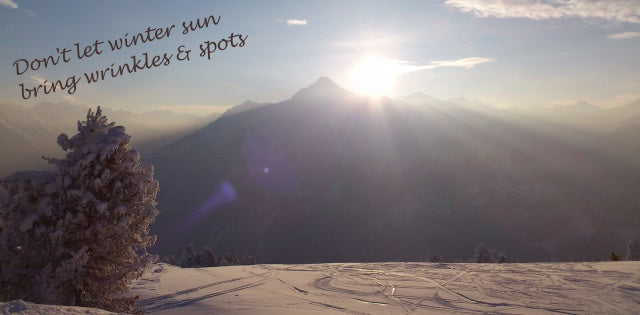Yes, you read it right: UV rays (in particular UVA rays) can penetrate the windows in your home, car and office and cause wrinkling and brown spots. Studies have found higher rates of skin cancers on the left side of the face and upper body than on the right, since that side is more exposed when you’re driving.

The need for sun protection indoors was reinforced in a recent report published in Clinical Interventions in Aging. Eight women and two men had significantly more wrinkles, brown spots, and sagging skin on one side of the face, even though they worked indoors. The side of the subjects' faces that was regularly closer to a window exhibited more signs of sun damage ("asymmetrical facial damage"), and UVA rays are believed to be the culprit. While both UVA and UVB rays can harm the skin and lead to skin cancers, UVB is effectively blocked by glass. However, at least 50 percent of UVA radiation can pass through windows. (Car windows have been proven to let in more than 60 percent.) This is important news for people who habitually sit near a window - whether at work, at home, or during a long commute by car, train, or bus.

Use a broad-spectrum sunscreen with an SPF of 30 when spending extended time outdoors, and don't forget areas such as underneath the nose and chin.Snow reflects up to 80 percent of the sun's UV light, so the rays hit you twice, further increasing your risk of skin cancer and premature aging. Wear protective clothing such as a broad-brimmed hat, gloves and UV-blocking sunglasses with wraparound or large frames.
Reapply sunscreen every two hours, and immediately after sweating or significant exposure to wind and snow which can wear away sunscreen. Activities such as skiing and snowboarding call for just as much sunscreen as you would use at the beach, since UV exposure increases 8 to 10 percent with every 1,000 feet above sea level.
Treat your skin to a good Apre-sun lotion that combats sun damage. Try Vienne Apre Surf and Slope, OR you can include sunscreen when you are customizing your own moisturizer here.
Remember, just because you aren’t sunbathing in winter, doesn’t mean your risk for sun damage is over – keep you skin protected all year long.
Sources: - (1) skincancer.org (2) realsimple.com


Publier le commentaire